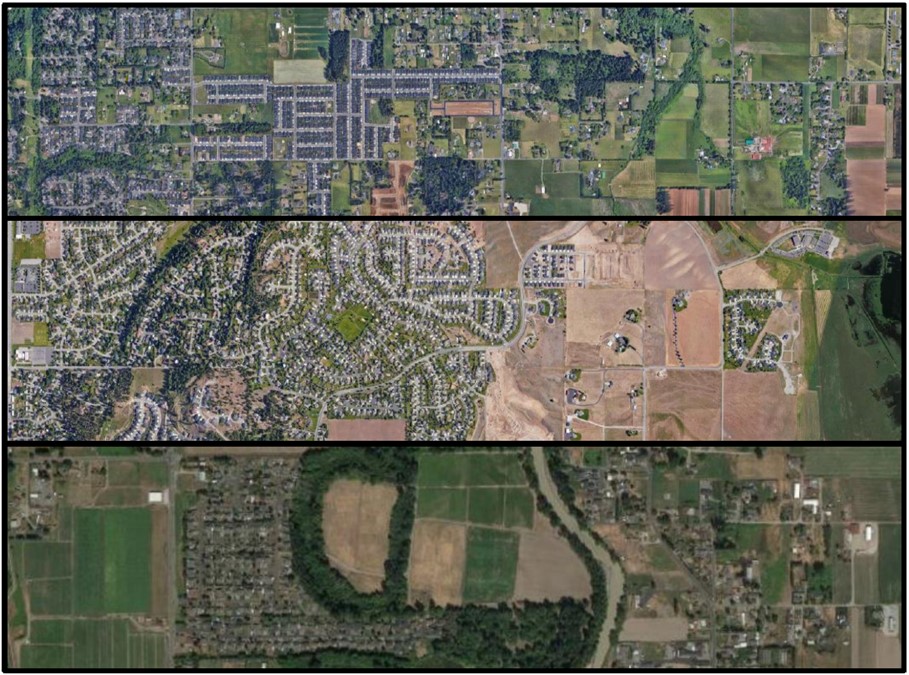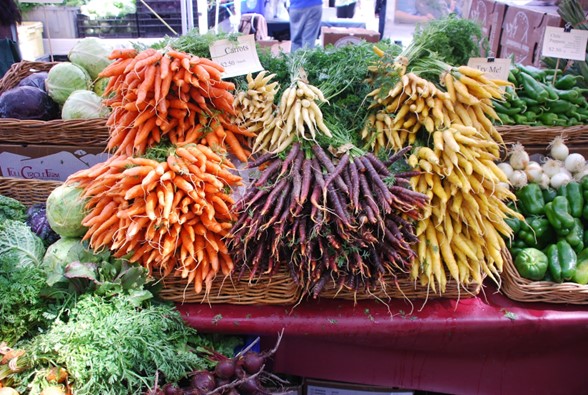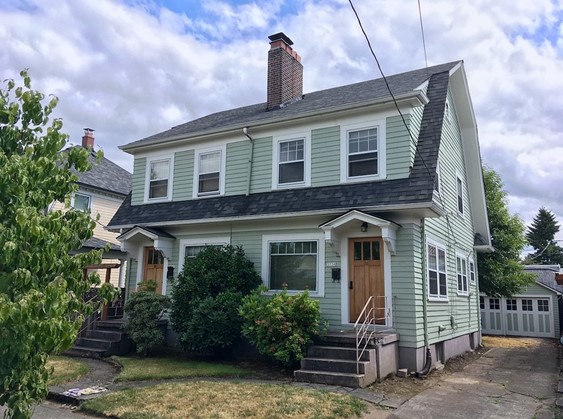Saving Farmland, Growing Cities in Washington State
To protect local food systems, we must fund farmland protection and build more housing in cities.

Farmers in Washington state and throughout the Pacific Northwest are canaries in the coal mine when it comes to urban expansion. The pressure to take farmland out of production has steadily increased under the weight of population growth, putting local food systems at risk. To stabilize farmland at the urban edge, we must stave off the threat of encroaching development. This year at the Washington legislature, American Farmland Trust will advocate to fund the permanent protection of Washington farmland and reduce development pressure by allowing middle housing options in existing urban footprints.
Washington farmers face many challenges to the viability of their livelihoods. Unpredictable markets, high input costs, access to water, labor shortages, and climate disruption are just a few examples. Peri-urban farmers, those who farm on the urban fringe, face additional pressures. New neighbors complain about farm operations, while traffic creates dangerous conditions for moving farm equipment between fields.
Meanwhile, landowners are receiving offers to buy their property. As surrounding farms are subdivided and sold for new development, local farm services and suppliers go out of business, impacting all the farmers that remain. Those who own their land consider their options, while tenant farmers are uncertain if their leases will be renewed. Once the land hits the real estate market, the next farmer can’t compete. The land is sold and permanently removed from the inventory of farmland.
Washington State is Losing Farmland
Through a multi-year effort, American Farmland Trust has mapped land use trends from 2001 to 2016 and projected them forward to 2040. Our Farms Under Threat research has shown that Washington stands to lose 192,000 more acres of farmland to urban development and low-density housing if trends continue, on top of the nearly 98,000 acres that have already been lost.
The loss of these peri-urban farms is a blow to local food systems. These are the farms we see at farmers markets, farm-to-school programs, farm stands, and local restaurants. It’s also a blow to the environment. As they provide food for the community, these farmers also steward the surrounding land to provide critical ecosystem services, including flood protection, habitat for fish and wildlife, groundwater recharge, and carbon sequestration.

Losing this farmland has implications for agriculture as an industry. Washington needs future farmers. As reported by the 2017 Census of Agriculture, for every Washington producer aged 65 years or older, there is only one who is 35 and under. Peri-urban farmland is a common entry point for new farmers, where parcels are smaller and close to market opportunities. In a recent survey by the National Young Farmers Coalition, 65% of young farmers on the west coast identified finding affordable land to buy as their primary barrier, with farmers of color facing disproportionate impacts.
AFT’s first priority this legislative session is to make Farmland Protection and Land Access (FPLA) an ongoing program and secure the next round of funding. FPLA fills a critical gap to protect farmland with a “buy-protect-sell” strategy. First, a revolving loan program allows a land trust to quickly buy farmland when it hits the market. Next, FPLA provides funding for an agricultural easement, removing the development rights and helping the land trust repay part of the loan. In the final step, the remaining balance of the loan is paid with proceeds of the sale to the next farmer, who now has access to more affordable farmland. FPLA prioritizes facilitating land access for beginning farmers, farmers of color, and veterans.
The success of this strategy hinges on continuous funding for FPLA to provide easements. Last year, the program was funded for the first time at $2 million. In just six months, that initial allocation is already on its way to saving 240 acres of farmland. This year, the State Conservation Commission has requested $4 million in the capital budget for the next biennium. The Legislature should fund this request, knowing that much more will be needed to address the magnitude of the problem.
Our second priority is to reduce development pressure by requiring cities to allow more diverse housing options to accommodate population growth. We are supporting Representative Jessica Bateman’s middle housing bill, which will allow housing such as multiplexes, courtyard apartments, and townhomes in existing city footprints, reducing the demand to develop housing on farmland. Washington should look towards the leadership that Oregon showed in 2019 to legalize these housing options. Considerations for housing affordability are important, as housing costs that displace people from the urban core also contribute to sprawl.

The Washington Food Policy Forum is a group of stakeholders from across the state that was created by the Legislature to make recommendations on improving the food system. In a recent report, the forum included both permanent farmland protection and urban infill in a set of recommendations to protect farmland through land-use policy. The full suite of recommendations, with issues that range from city annexations to water availability to urban agriculture, should be considered for action at both state and local levels.
We all benefit by having strong, viable farms in Washington. It is critical that we ensure a future for the farms that support our local food systems. Advancing the priorities of permanent Washington farmland protection and statewide middle housing at the Washington legislature will help to stabilize the immediate issue of the loss of irreplaceable farmland. These strategies are key pieces of a much larger puzzle as we work to keep farmers on the land.

